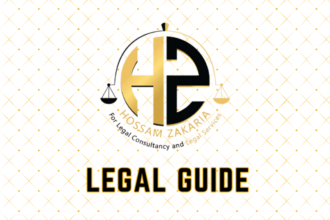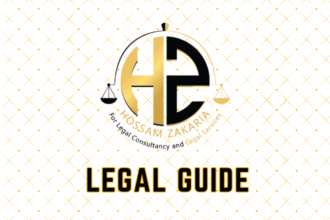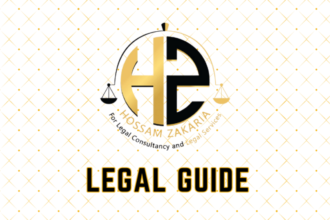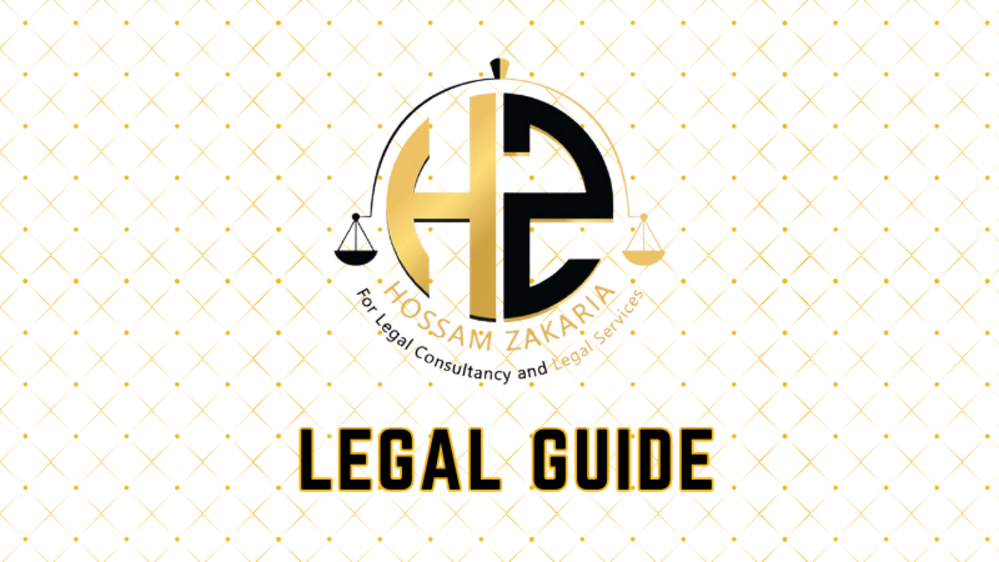Introduction: UAE Businesses and the Evolving Aircraft Certification Landscape in Qatar
In today’s interconnected Gulf economy, the civil aviation industry stands at the heart of regional business transformation. As Qatar cements its status as a major aviation and logistics hub, new opportunities—and legal obligations—arise for UAE enterprises operating, investing in, or leasing aircraft within Qatari jurisdiction. Recent reforms and updates to Qatar’s airworthiness and aircraft certification regulations demand careful attention from UAE stakeholders seeking seamless operations, robust compliance, and strategic market positioning.
This in-depth analysis aims to guide UAE businesses, legal practitioners, and corporate leaders through the intricacies of Qatar’s airworthiness regime, with practical insights, official legal references, and actionable compliance strategies. We draw on verified sources, such as UAE Ministry of Justice and relevant Qatari and international aviation laws, and highlight comparative considerations that should inform executive decisions as cross-border aviation activities intensify.
Table of Contents
- Regulatory Overview: Airworthiness in Qatar
- Key Legal Frameworks Governing Aircraft Certification
- Comparing UAE and Qatari Approaches
- Aircraft Certification Process in Qatar: Step-by-Step
- Practical Consultancy Guidance for UAE Businesses
- Risks of Non-Compliance and Their Mitigation
- Penalty Comparison Chart: Non-Compliance in UAE vs Qatar
- Case Studies and Hypothetical Scenarios
- Forward-Looking Perspective: Trends and Recommendations
- Conclusion: Strategic Compliance and Business Resilience
Regulatory Overview: Airworthiness in Qatar
Airworthiness—the fundamental standard ensuring that aircraft are maintained and operated in a condition fit for safe flight—sits at the core of aviation law globally. Qatari law, in line with international best practices, mandates a rigorous system for both initial and continuing airworthiness and ties aircraft registration, operation, leasing, and financing closely to certification outcomes. For UAE companies with cross-border investments, charter operations, or joint ventures in Doha, understanding these frameworks is not a matter of administrative formality; it is the linchpin for seamless business, regulatory approval, and risk management.
Civil Aviation and Airworthiness Oversight in Qatar
The Qatar Civil Aviation Authority (QCAA) is the principal regulatory body. Its powers and processes are anchored in:
- The Qatar Civil Aviation Law (Law No. 15 of 2002), as amended;
- Executive regulations and QCAA directives;
- Standards drawn from the International Civil Aviation Organization (ICAO), especially Annex 8 (Airworthiness of Aircraft);
- Regional GCC aviation agreements impacting reciprocal recognition of certification and safety oversight.
All civil aircraft operating in, registered under, or leased into Qatar must hold valid airworthiness certificates recognized by the QCAA. Equally, associated maintenance organizations, personnel, and documentation are subject to compliance audits and continuing surveillance.
Key Legal Frameworks Governing Aircraft Certification
1. Qatar Civil Aviation Law (Law No. 15 of 2002, as amended)
This law forms the foundation for Qatar’s aviation system. Pertinent provisions include:
- Article 20-22: Mandate for certificate of airworthiness prior to operation of any civil aircraft.
- Article 24: Prescribes QCAA’s powers to conduct inspections, withdraw, or suspend certificates over safety concerns.
- Article 35: Prescribes penalties, including grounding of aircraft, fines, and potentially revocation of business licenses for repeated or grave lapses.
2. QCAA Executive Regulations (Current as of 2024)
Key highlights:
- Detail the procedural steps for granting, renewing, suspending, or refusing certificates.
- Set documentation, technical, and audit requirements aligned with ICAO standards.
- Allow recognition of foreign airworthiness certificates in defined scenarios, subject to QCAA vetting.
3. ICAO Annex 8 and Qatar’s International Commitments
Qatar, as a member of ICAO and a signatory to the Chicago Convention, adopts Annex 8 as binding guidance for airworthiness standards, including for foreign-registered and leased aircraft. This has implications for UAE lessors and operators, whose national certifications may be subject to Qatari cross-recognition or additional requirements.
Comparing UAE and Qatari Approaches: Key Similarities and Differences
UAE firms must navigate the nuances between UAE General Civil Aviation Authority (GCAA) and QCAA requirements, especially after legislative updates in 2023–2025. The following table illustrates major touchpoints and differences:
| Category | Qatari Law (2024) | UAE Law (2025 Updates) |
|---|---|---|
| Primary Legislation | Law No. 15 of 2002, as amended | Federal Law No. 20 of 1991, amended by Federal Decree-Law No. 12 of 2023 |
| Certification Authority | QCAA | GCAA (General Civil Aviation Authority) |
| Recognition of Foreign Certificates | Conditional, based on bilateral agreements and QCAA review | Conditional, but increasingly harmonized with ICAO and GCC partners |
| Continuing Airworthiness | Mandatory regular inspections, QCAA audits | Similar, with emphasis on digital records and proactive reporting (per 2025 updates) |
| Penalties for Non-Compliance | Up to QAR 5 million fine, potential business license suspension | Up to AED 6 million, temporary flight bans, enhanced criminal sanctions |
Visual Suggestion: Consider a process flow diagram illustrating the parallel certification workflows in UAE and Qatar, clarifying points of divergence for executives managing cross-jurisdictional fleets.
Aircraft Certification Process in Qatar: Step-by-Step
1. Application Submission
The applicant (owner, lessee, or operator with UAE interests) must provide a comprehensive dossier, including:
- Proof of legal status (ownership/lease agreement);
- Type certificate and previous airworthiness certification, if applicable;
- Maintenance records and compliance with type design standards;
- Payment of QCAA prescribed fees.
2. Review and Technical Assessment
The QCAA performs a dual-level assessment:
- Documentary Review: Legal, technical, and safety documentation are checked for completeness, accuracy, and compliance.
- Physical Inspection: On-site technical inspections by QCAA-certified inspectors, with special attention for first-time UAE lessors or operators.
3. Certificate Grant, Conditions, and Validity
Airworthiness certificates may be:
- Unrestricted—permitting all standard commercial use;
- Restricted—with limitations on operations, typical for non-standard aircraft or first-time applicants;
- Subject to continuing oversight, with QCAA entitled to conduct random spot-checks.
4. Renewal, Suspension, and Revocation
Certificates are generally valid for fixed periods (often 12–24 months), contingent on:
- Adherence to continuing maintenance schedules;
- Timely reporting of incidents, modifications, or repairs;
- Passing periodic audits and inspections.
The QCAA possesses broad discretion to suspend or revoke certifications for safety breaches, non-disclosure, or material non-compliance.
Practical Consultancy Guidance for UAE Businesses
Understanding the Strategic Importance
For UAE firms—whether airlines, leasing companies, financiers, or logistics operators—ensuring airworthiness compliance in Qatar is essential for risk mitigation, business continuity, and regulatory goodwill. Certification failure does not merely delay operations; it exposes companies to heavy fines, reputational setbacks, and potential criminal liability for directors under both Qatari and reciprocal UAE law provisions.
Essential Best Practices
- Integrate Early Legal Review: Involve UAE and Qatari legal counsel from contract drafting stage, especially in leasing, joint-venture, and MRO agreements.
- Conduct Pre-Audit Compliance Checks: Before application, benchmark documentation and aircraft status against QCAA/ICAO standards.
- Draft Robust Contracts: Allocate risks and responsibilities in aircraft acquisition/leasing agreements, specifying obligations in maintenance, reporting, and regulatory disclosures.
- Regular Training: Implement continuing education for compliance officers, technical crew, and legal staff on evolving QCAA guidelines and bilateral regulatory developments.
Risks of Non-Compliance and Their Mitigation
Failure to adhere to Qatari airworthiness requirements can lead to significant operational, financial, and reputational risks. These include:
- Fines: Substantial monetary penalties for both entities and responsible individuals.
- Grounding of Aircraft: Immediate cessation of all related commercial activities within Qatar, often triggering contractual penalty clauses.
- License Suspension: Loss or suspension of operational licenses, impacting business continuity and customer trust.
- Potential Criminal Liability: Under Qatari and, in some cases, UAE federal law for gross or willful negligence.
Mitigation Strategies:
- Conduct regular, documented compliance audits with external legal oversight.
- Leverage specialized compliance management platforms coordinating UAE/GCC regulatory input.
- Negotiate insurance policies that expressly cover compliance failures and associated penalties.
- Engage in open dialogue with QCAA representatives; proactive communication frequently mitigates regulatory escalation.
Penalty Comparison Chart: Non-Compliance in UAE vs Qatar
| Violation | Penalty (Qatar 2024) | Penalty (UAE 2025) |
|---|---|---|
| Operating without valid airworthiness certificate | QAR 3–5 million, aircraft impounded | AED 4–6 million, flight ban, criminal liability |
| Failure to report incident/major repair | QAR 500,000–2 million, possible suspension | AED 800,000–2 million, additional reporting obligations |
| Submission of falsified documents | Criminal prosecution, permanent ban | Criminal liability, prohibition from future certifications |
Visual Suggestion: A compliance checklist visual for UAE business managers involved in cross-border aviation operations may improve internal awareness and audit readiness.
Case Studies and Hypothetical Scenarios
Case Study 1: UAE Leasing Firm Seeks Entry to Qatari Market
Scenario: A UAE-based lessor arranges dry lease of two mid-range jets to a Qatari domestic carrier. The lessor’s legal team submits GCAA-issued airworthiness certificates and accompanying technical logs to QCAA for review.
Outcome: QCAA, while referencing GCC-wide recognition, demands supplementary inspection and updated maintenance records according to QCAA’s unique reporting format. The lessor’s pre-emptive engagement with a Qatari law firm and MRO partner expedites the adapted compliance, avoiding penalty and launching operations on schedule.
Case Study 2: Oversight of Continuing Airworthiness
Scenario: A UAE logistics company operates a joint-venture maintenance facility in Doha. One freighter is discovered, during QCAA’s spot-check, to have delayed non-routine maintenance tasks.
Outcome: Due to prior investment in integrated compliance management (including real-time updates matching both QCAA and GCAA log systems), the firm swiftly documents the lapse, corrects procedures, and receives only an administrative warning without financial or operational sanction.
Hypothetical Example: Penalties Escalation
A start-up air taxi service, backed by UAE investors, fails to register a critical avionics upgrade with QCAA. An operational incident leads to investigation; the absence of updated certification not only incurs a QAR 2 million fine, but also triggers insurers’ refusal to cover damages. This reinforces the operational and financial imperative for cross-checking all modifications under both Qatari and UAE law before deployment.
Forward-Looking Perspective: Trends and Recommendations
Regulatory Trajectory and Technological Integration
Ongoing reforms in both Qatar and the UAE point to increasing harmonization of airworthiness standards, more robust digital record-keeping, and heightened cross-border regulatory cooperation (highlighted by recent GCC aviation forums). For UAE businesses, agility in legal compliance is not merely recommended—it is essential to long-term competitiveness.
Emerging best practices include investing in digital airworthiness monitoring, appointing multi-jurisdictional compliance officers, and proactively tracking announcements by the QCAA, GCAA, and the UAE Ministry of Justice as further legislative updates are anticipated by 2025.
Conclusion: Strategic Compliance and Business Resilience
In summary, navigating Qatar’s airworthiness and aircraft certification regime requires more than administrative diligence; it demands a dynamic, forward-looking legal and operational strategy. For UAE stakeholders, the stakes include market access, regulatory standing, and broader risk exposure across the GCC. Establishing comprehensive compliance protocols, fostering legal expertise in both jurisdictions, and embedding a culture of proactive regulatory engagement will be crucial as both Qatar and the UAE continue to update, harmonize, and enforce higher standards of aviation safety and commercial transparency.
Our recommendation: treat airworthiness compliance not as a box-ticking exercise, but as a core function of executive risk management and business development. Engage qualified legal partners, leverage technology, and remain alert to legislative changes to ensure your business thrives across borders in an evolving aviation market.



